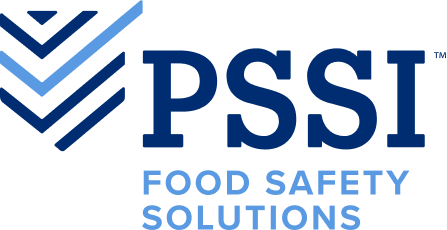This year has presented new challenges none of us could’ve predicted. The adjustments and management related to Covid-19 protocols has required significant time and effort to manage employee safety across individual plants. Navigating this new world of operation is a lot to manage and, in many cases, is continuing to take the focus away from other areas of the business.
However, as we enter into the thick of summer, one thing that is critically important not to lose sight of is sanitation and cleaning around your facility. An increase in ambient temperature is a catalyst for microbial growth, especially when temperatures are hit and maintained over a longer period of time.
Dangerous microbes can spread quickly, threatening the safety and quality of your products. The most common type we see during summer months are spoilage microbes that can drastically impact the shelf-life of products.
In order to ensure consistency through high heat seasonal changes, there are a number of key steps we recommend reviewing with your team now if you haven’t already.
Review Master Sanitation Schedule
Make sure your Master Sanitation Schedule is up to date and being completed at the right frequency. This should include proper cleaning of air units and cooling units to ensure they are working at max capacity and free from any potential microbial contaminates. Air curtain cleaning between cooler and warmer or more humid areas is also important. The difference in temperature causes condensation that provides a ripe environment for increased microbial growth.
Verify Sanitation and Swab Process
Consistency and thoroughness of daily sanitation is critical. Make sure proper steps are taken and chemicals are being used at the proper concentration. PSSI follows a scientifically-verified 8-Step Sanitation process to ensure there are no gaps or missed spots.
Also, be conscious about swab samples sitting out in heat. It can drastically impact the results if left out in the sun or heat too long. We recommend confirming the carrier pick-up time and keeping in the refrigerator until pick up time to make sure you get the most accurate results.
Integrated Pest Control Management
During warmer months, egress areas including trash and shipping docks are typically open more frequently. They also become vulnerable areas for insects and other rodents to enter, while also allowing warmer air into the facility increasing the ambient temperature. An integrated pest management system with sanitation is ideal in managing food safety properly.
Check Preventative/Maintenance Programs
As with pest control, it is important to make sure your other preventative maintenance programs are being reviewed and executed properly. This includes things like heating and cooling system tune-ups, as well as cleaning of peripheral areas like trash rooms, dry storage, hallways/entryways, communal areas, etc. These areas are typically more susceptible to warmer air entering the facility and can become a breeding ground for dangerous microbes that can impact supplies and ingredients transferred into the main plant/production areas.
We also recommend increasing the frequency of temperature monitoring within the main production areas. Ideally, 2-3x per shift to make sure ambient temperature is consistent.
This is an especially critical time, when the stakes are high to keep employees safe and production consistent with increased food demands. Taking a step back to review your food safety and sanitation programs is well worth your time to avoid disruptions or other food safety-related risks.
As a leading food safety, sanitation and chemical provider, PSSI works to keep our partners safe all year round with a customized plan adjusting to seasonal changes and other variables. In addition to a robust program, we provide effective training as well as detailed documentation and verification to ensure all tasks were completed properly and on-time. This ensures our partners are always confident and prepared for whatever the season brings.
For help reviewing your current food safety and sanitation schedule, visit pssi.com.
